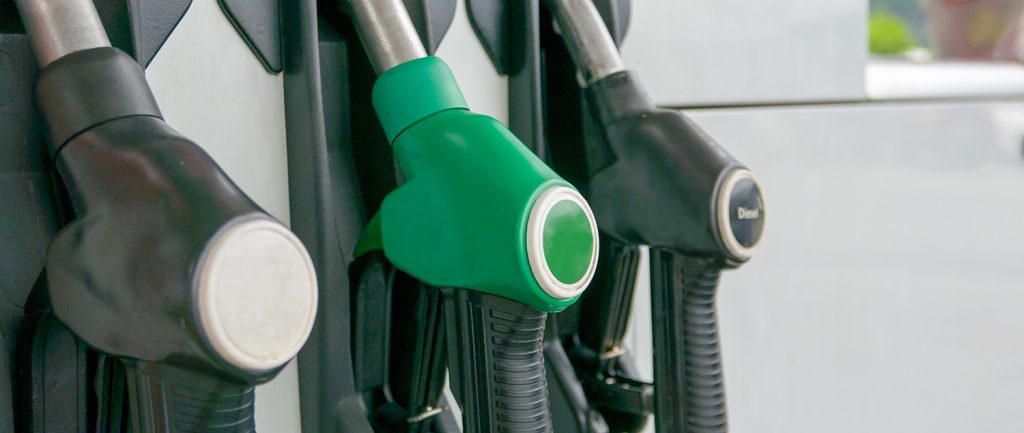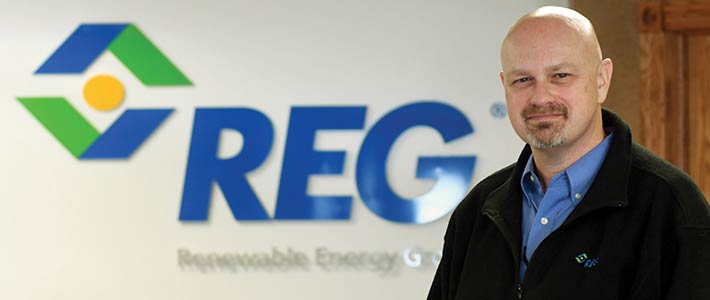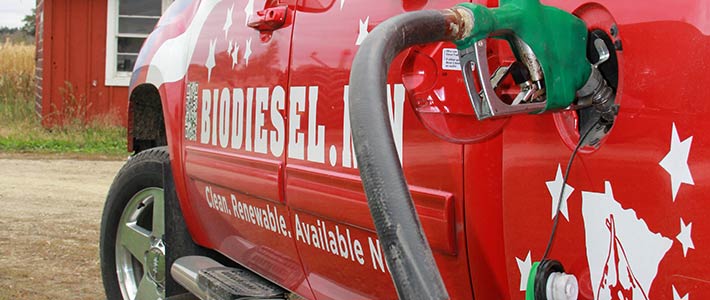This article first appeared in the July-August issue of Soybean Business. To view the online version of the magazine, click here.
Student learns valuable lesson through unique science-fair project
Josiah Butler is already a biodiesel true believer at the ripe age of 10 years old.
“Biodiesels are a lot better than fossil fuels,” the Sibley East Elementary fifth-grader says. “It’s better burning and produces more energy.”
Butler drew his conclusions after conducting a science experiment that won first place in April at the Southern Minnesota Regional Science & Engineering Fair in Mankato.
The project was called “Synthesizing Biodiesel from Common Cooking Oils,” and took place over several months of research.
The basis of Butler’s project was difficult to translate to his peers.
“It was hard to explain. They only knew a couple words: ‘from’ and ‘cooking oils,’” Josiah says, laughing. “They told me to make it easier to understand, but pretty much everyone said it was a good project, and the chemistry judge knew a little bit about biodiesel.”
Butler’s hypothesis stated that creating biodiesel from vegetable oils would produce cleaner energy than fossil fuel diesel.
“After I heard about the biodiesel issue, and how much of a popular crop soybeans are, I wanted to try to make a biodiesel fuel,” Butler says. “My family is involved in a lot of environmental sciences, and I thought it would be cool to try this.”
Josiah’s mother, Christine, is a Sibley East high school biology teacher; his oldest brother, Jonah, attends the prestigious Massachusetts Institute of Technology (MIT). Not surprisingly, Josiah’s favorite school subject is science.
“Science is one of the first things I learned,” he says. “Science is more direct (than other subjects), you have be exact and on-point. I like math, too, for the same reason.”
To prepare for the experiment, Josiah bought a can of soybeans from the local fleet store near Glencoe.
During weekends in the winter, Christine allowed Josiah and his grandmother access to her lab, chemicals and safety gear. His grandmother assisted Josiah in heating and pouring the oils into mason jars. Christine later helped convert the heat to joules.
In all three results, Butler concluded the soybean biodiesel samples performed better than both corn and canola.
“After all three tests, I feel a lot more confident about my project,” he says. “I was very intrigued by it.”
His science teacher, Kelly Bielke, says Josiah is a model, precocious student and handled the bulk of the experiment.
“He had some help but it’s not like a parent did this for him,” she says. “Josiah’s a great kid and was quite on top of it. He works really hard, and always has a book in his hand.”
Josiah also researched the history of biodiesel, including its inventor, Rudolf Diesel. He was surprised to learn biodiesel has only been a mandate in Minnesota for 15 years.
“Rudolf Diesel was very important because he wanted farmers to learn how to grow their own fuel,” Butler says. “I thought (biodiesel) would’ve been around longer, but it seems only recently people are realizing it’s better than petroleum, which produces really high (greenhouse) gas emissions.”
Josiah believes biodiesel has a bright future as a leader in renewable fuels. If it were up to him, B20 (20 percent) would just be the start of the advanced fuel movement.
“B20 is really good,” he says, pointing to a chart on his project board. “But B100, pure biodiesel, is a lot better. It’s already becoming more popular – pretty soon I think that’s all people will use. The United States already produces the most biodiesel in the world.”
Josiah smiles coyly when asked how he would respond to biodiesel’s critics. Conduct an experiment, he advises, and heed the results.
“I would tell those people to do some research and look at the facts,” he says.
Josiah says he’ll probably explore a different experiment next year. When he grows up, he hopes to be study the universe.
“I’m not so interested in the past,” he says. “Things like biodiesel are the future, and that’s what I’m interested in.”
Tags: biodiesel





